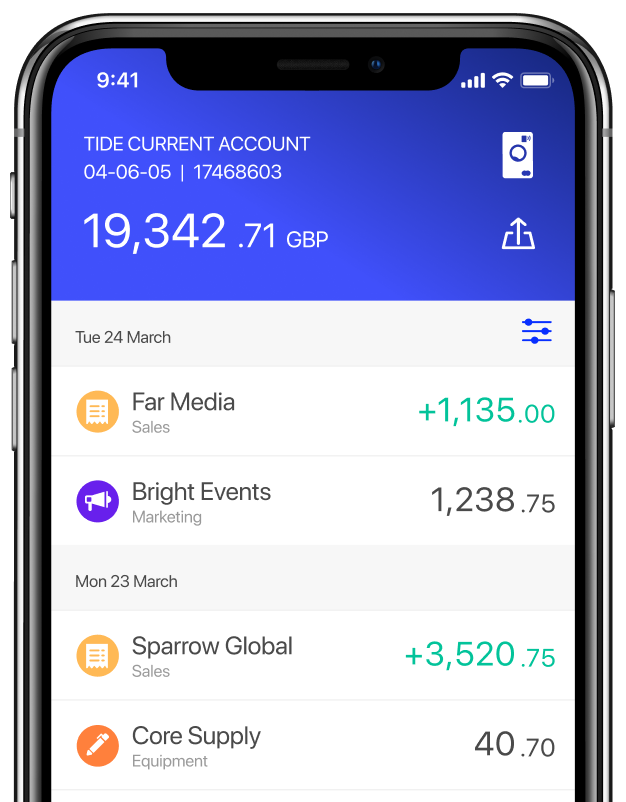
Company name vs trading name: what’s the difference?

Did you know, it’s possible to register your business name at Companies House, but then trade under one, or even multiple different names for your company?
Some businesses in the UK can have several trading names with only their original name being the one registered with Companies House.
So, why do organisations do this? Are there advantages?
It’s important for business owners and, particularly those just starting out to understand the difference between a company name and a trading name.
In this article, we will explore both the benefits and restrictions of using a trading name vs a company name, as well as the factors a business owner should take into consideration before opting to go down this route.
Table of contents
- What is a company name?
- What is a trading name?
- What is a trademark?
- Company name vs trading name: the benefits
- Are there any restrictions on using a trading name?
- Company name, trading name or trademark?
What is a company name?
When you register your business with Companies House, you are creating a limited company.
Having a registered company name will demonstrate to both investors and potential customers that you are a legitimate operator.
Under the terms of the Companies Act 2006, in order for a company to be accepted and registered with Companies House, it must abide by the following conditions:
- It cannot give the impression that the business is connected with HM Government or any local or public authority
- No sensitive words or expressions, unless these have prior approval
- It must not be the same as or too similar to the name of another registered company
- The appropriate ending should be included (i.e. Ltd, CIC, Plc)
- It cannot include certain characters, punctuation, or symbols
Sensitive words include terms that could be contentious or politically offensive. They are expressions that imply a company could have a certain special status. Examples of these include words such as ‘Royal’, ‘Trust’ or ‘Association’.
To learn more about choosing a name for your business, see our blog on how to find the perfect name for your business.
Use our Company Name Check tool to bulk check company name availability at ease
Ensure your company name complies with Companies House before you register your UK limited company. Apply in minutes, for only £14.99, with Tide – we’ll take care of the rest. Turn your dreams into a reality and register your company today! 🚀
What is a trading name?
When you register a company name with Companies House, it means that no other company can register this exact name. But it doesn’t automatically protect you by trade mark law.
Trading names do not have the same level of protection. To stop other companies trading under your business name, you’ll need to register a trademark.
The definition of a trading name is a name (or names) that a person, partnership, or company may use which is different from the name they have registered with Companies House.
A business may be permitted to use as many trading names as required, but these cannot be registered as official names of the company.
It’s quite common for UK companies to adopt a trading name to run their business with. This is essentially a different name to that which their business has been registered under. Some limited companies even run multiple businesses with various trading names, yet all under the umbrella of a single limited company.
As well as limited companies, sole traders and partnerships are also permitted to use trading names too.
What is a trademark?
A trademark is a legal symbol, typically a name, logo or slogan that distinguishes a company’s products or services from others. It serves as a form of intellectual property protection, meaning that it cannot be used by competitors.
If you’re registering a company simply to protect the name, with no intention to trade, a trade mark could be a better option.
While obtaining trademarks is a strategic move to secure and strengthen your business’s brand, it involves fees and legal expenses – a trademark application in the UK starts from £170.
Company name vs trading name: the benefits
Despite the risks and potential restrictions, using a trading name is frequently favoured by many UK companies. There are a number of potential advantages to this approach:
- Save time and money. Using multiple trading names under one company can reduce your admin, such as filing confirmation statements and annual accounts. This is because you would only have to file these documents in the name of the registered company.
- Differentiate various sections of your business. You can offer your services with separate trading names, so it’s clear to potential customers. For example, the company you have registered with Companies House may be a specialist web design business, but you also provide content services and technical SEO.
- Helps the branding of your business. If the domain name and social media handles for your registered company have already been taken, you could work around this by using the trade name that matches your desired brand name, website and social media profiles.
For more tips and ideas about branding, see our blog article on how to build a brand for your business.💡
Are there any restrictions on using a trading name?
As explained earlier, trading names do not have the same level of protection as a registered company name.
Here’s the main restrictions around using a trading name vs a company name:
- If someone wanted to register your trading name as a limited company, then they would be able to do so. They could even prevent you from using it!
- If you select a trading name that’s too similar to an existing business or sole trader, you could be sued for ‘passing off’. This could cause huge disruption to your business and potentially damage your reputation and standing with your customer base too.
- For business documentation such as invoices, purchase orders, business letters, and any licence applications, you’re legally required to put your registered company name and address. If you also have a trading name, this would go on the company letterhead. The company’s registered name and address would go in the footer of the letter.
By using a trading name, there is also a risk that you may be infringing a trademark. It’s recommended to carry out a UK trademark search in addition to a business name check prior to using a trading name.
Company name, trading name or trademark?
Choosing a name for your business is not as easy as one might think – it takes some consideration.
Your company name is the official name under which your business is registered, representing its legal identity. While a trading name acts as an alias that can be used for commercial purposes, it isn’t a legal title.
Trademarks, however, go beyond identification; they are legally protected symbols associated with a business’s products or services.
While a company and trading name signify the business itself, trademarks focus on protecting elements of your brand. They provide exclusive rights and prevent competitors from using similar marks.
Whichever you choose, bear in mind that Companies House deals with company registration and the Intellectual Property Office register trademarks.
Registering your company with Tide has never been easier. It’s fast, it’s secure and it costs £14.99 instead of £50 – we’ll take care of the rest for you. Get a free business bank account and unlock a suite of finance management tools to help save your business time and money.
Photo by Polina Zimmerman published on Pexels




